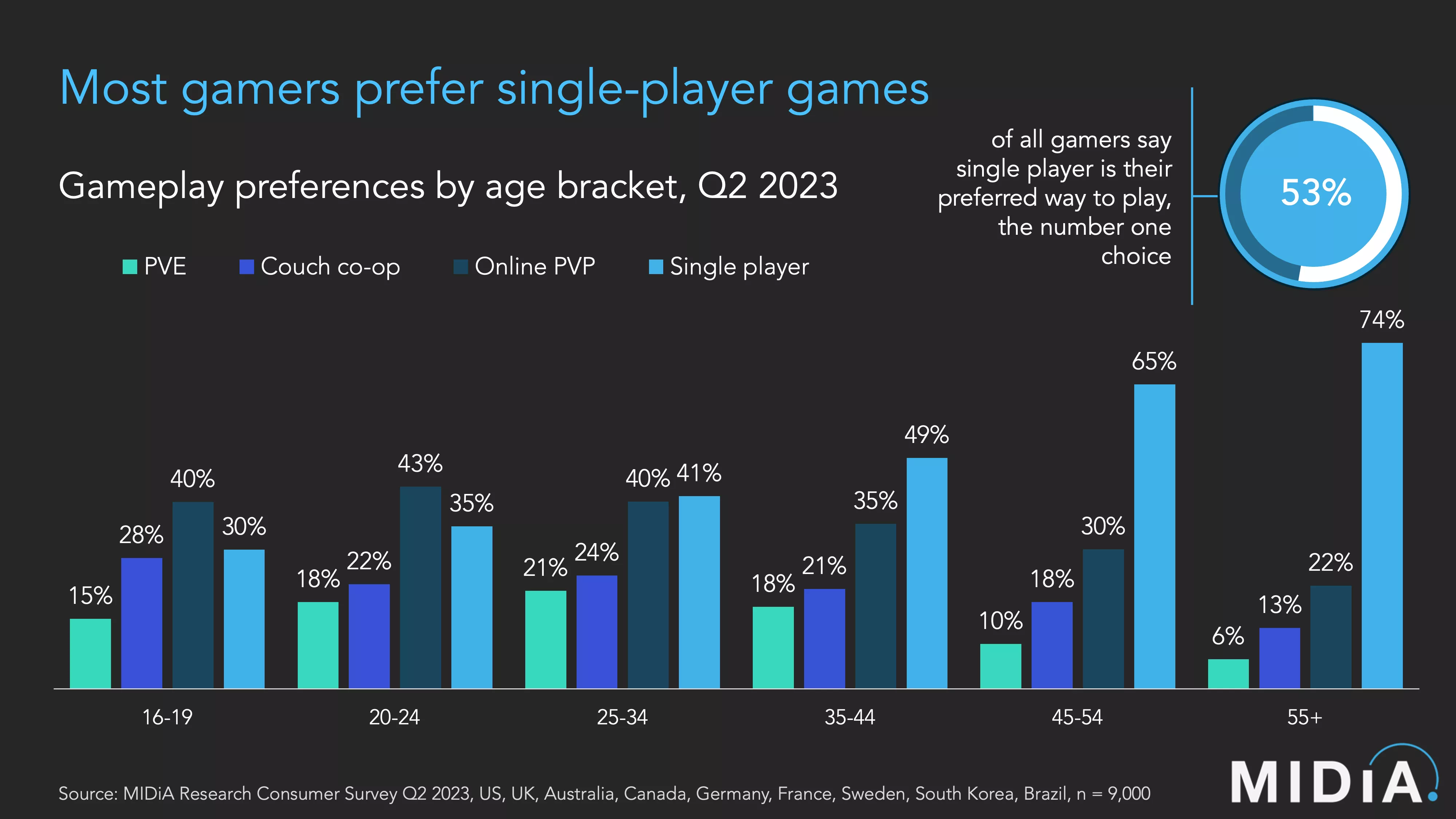Editor's take: Publishers and developers will need to keep a close eye on these generational preferences. The younger set is gravitating toward live-service PVP games, but today's overall gaming landscape still leaves ample breathing room for richly crafted single-player adventures to resonate. This window could start closing, though, if upcoming generations continue embracing multiplayer experiences en masse.

New research shows a massive generational divide in game genre preferences. A study by MIDiA Research surveyed 9,000 gamers across several countries including the US, UK, Germany, and South Korea. It found that online player-vs-player games are more popular than single-player ones among audiences aged 16-24. Only 30% of this bracket wants to play alone, while a whopping 68% of them would rather play online or couch co-op.
However, for the oldest age group (over the age of 55), a whopping 74% of gamers say they prefer playing single-player games without any online components. If you look at the graph below, you'll notice a gradual but stark trend as you move from the youngest to the oldest audience.
The researchers suggest a few factors behind the popularity of PvP among the younger crowd. Younger players may be drawn to the social engagement and competitive thrills of PVP games they can experience with friends. Convincing this bunch to ditch their online hangouts for a new single-player adventure is an uphill battle. Older gamers, meanwhile, seem to prefer the solitary focus and narrative storytelling of solo experiences.
Interestingly, the data also shows couch co-op waning with the 35+ crowd – the very players who likely grew up with iconic split-screen multiplayer games. Perhaps online play has supplanted the need to crowd around the TV these days.
Despite these trends, it's worth mentioning that the official headline for the report is "Most gamers prefer single-player games." That's because single-player continues to reign supreme for most respondents overall at 53%. The research notes that despite hits like Fortnite, League of Legends, and Roblox, the PvP market is becoming over-saturated, leaving more breathing room for single-player experiences.
To keep this popularity up, the analysts advise smarter single-player release windows. For instance, launching these games during quieter periods in the online title release calendar could allow them to shine when players are looking for a change of pace.
Image credit: Sean Do
Massive generational gap: Gen Z flocks to multiplayer, while 55+ sticks to single-player
